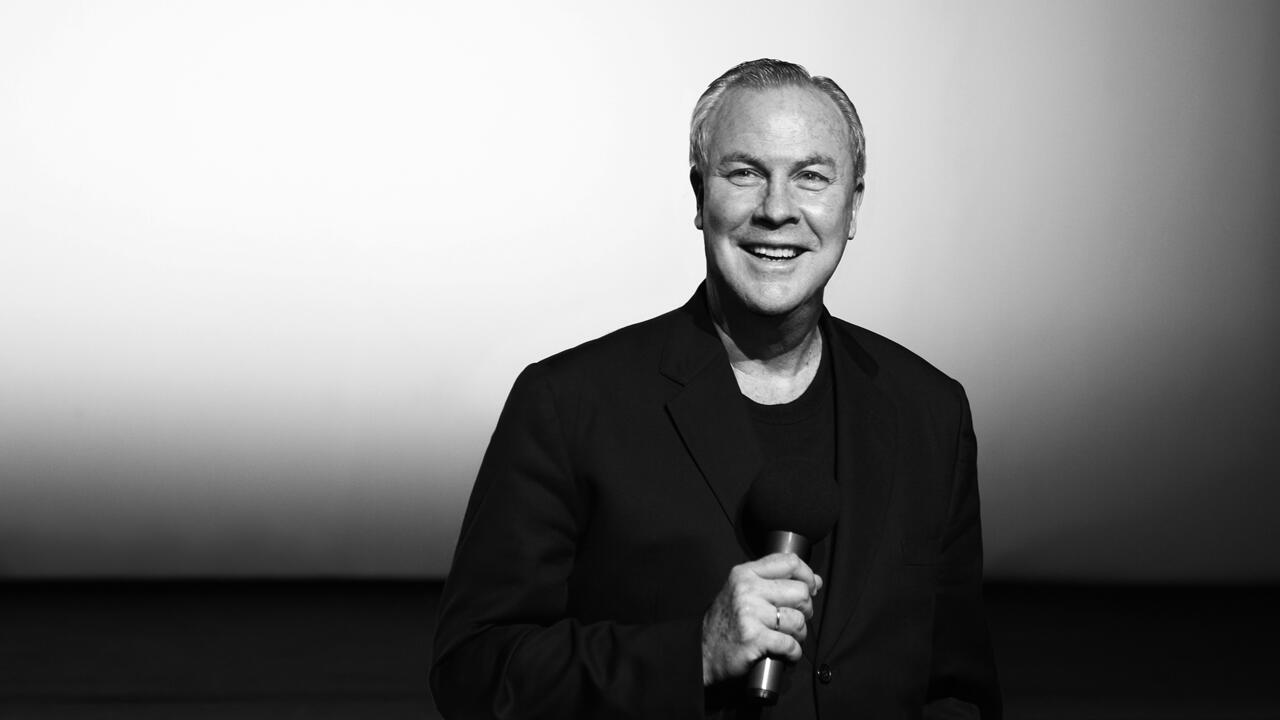The Storytelling Impulse of Scott Walker (1943-2019)
The late pop maverick was influenced by sources as diverse as Jacques Brel, Swedish cinema and Sibelius
The late pop maverick was influenced by sources as diverse as Jacques Brel, Swedish cinema and Sibelius

The standard narrative about Scott Walker’s career goes like this. In the mid-1960s he is a teen hearthrob in boy band The Walker Brothers, mobbed by obsessive, adoring fans. He goes solo in 1967 and records three hit albums of literary, symphonic pop – Scott 1, 2, and 3. The run comes to an abrupt commercial end with the surprise failure of Scott 4 in 1969, and its follow-up ’Til the Band Comes In (1970). Walker slumps into a decade of contractually obliged covers albums, forgotten by everyone, until four icy songs written for the 1978 Walker Brothers ‘comeback’ album Nite Flights signal a groundbreaking change of direction. In 1981, post-punk musician and Walker devotee Julian Cope produces Fire Escape in the Sky, a compilation of Walker’s ’60s music packaged in a cool, minimalist sleeve, which introduces him to new, critically-savvy audiences. Over the next 30 years his work turns increasingly experimental. He releases just five albums, writes three film soundtracks, and collaborates as a producer and performer with a younger generation of musicians. Across the years his voice modulates from the burnished baritone for which he became famous into a tremulous, anxious tenor. You can hear in his music the increasing influence of 20th century modernist composers and witness him working with musicians including the free jazz saxophonist Evan Parker, drone metallers SunnO))), singer-songwriter Bat For Lashes and the rock band Pulp. His legend grows larger the more reclusive he becomes. Giving his first interview in almost a decade to French music magazine Les Inrockuptibles in the mid-1990s, Walker was asked what he had been doing since the release of his 1984 album Climate of Hunter: ‘I’ve lived. That’s it.’
This story arc is true enough, but it flattens Walker’s work, tending to divide it artificially into the ‘accessible’ ’60s work and a later ‘critically-acclaimed-but-difficult’ period. Yet listen to songs from his high pop phase and his appetite for musical complexity is clear. Crucial to the sound of that 1960s solo work was composer and orchestral arranger Angela Morley (known then as Wally Stott, before she transitioned in 1972), who remembered how it struck her as unusual that the young pop star said he wanted his music to sound like Frederick Delius or Jean Sibelius. ‘Such a Small Love’ (1967) features eerie droning strings and almost Eastern-influenced organ figures before launching into a soaring, brass-led chorus. The idea is echoed in the opening bars of ‘It’s Raining Today’ (1969), in which violins, shimmering in uneasy dischord, are contrasted by gently strummed acoustic guitar chords. ‘Plastic Palace People’ (1968) features three distinct sections. There is a woozy verse that sounds like a bird riding up and down on air thermals, a classic 1960s, major key pop chorus, and a portentous orchestral bridge with ghostly double-tracked, out-of-sync vocals. As each section slides into the next they give the impression of scanning a radio dial, as if they are parts of three different songs running concurrently. In later years, Walker never lost the storytelling impulse found in his early songs. ‘Clara’, from The Drift (2006), reflects on the life of Benito Mussolini’s mistress, Clara Petacci. The sublime ‘Farmer in the City’, which opens the 1996 album Tilt, is ostensibly about the murder of filmmaker Pier Paolo Pasolini, yet has a tenderness to the lyrics that speaks to themes of alienation, loneliness and self-worth. Two songs written in 2000 for singer Ute Lemper, a noted interpreter of Kurt Weill’s music, nodded back to the European musical theatre that influenced his ’60s songwriting.
In 1969, 14 anonymous ‘ex-Scott Walker fans’ from Salford, disgruntled at his increasing interest in exploring new ideas, sent a poem to the Melody Maker music newspaper expressing their anger. Their rhyming invective ended: ’The lonely young long-distance Walker, / The avid Brel and Sartre talker; / Don’t underestimate our force / The end is nigh you’re way off course. / Your reign is over – good-bye Scott / Face it man – you’ve had your lot!’ (Angry Twitter mobs are nothing new.) Walker’s music could certainly provoke accusations of pretension. Perhaps the legacy of his days as a teen idol, there was an implicit suspicion that he was punching above his weight writing songs about postwar European history, philosophy, sex and death, and that he should simply knuckle down and get back to ‘entertaining’ his audiences. Yet his songs provided a gateway to other ideas. They pointed to films, books, and other musicians years before we ceded that task to algorithms that know nothing of the emotional experiences that can lead a person to make cultural discoveries for themselves. Through an utterly uncompromising attitude to work – to what you make, and how fast you do it – Walker taught that you do not need obey the conservative conventions of pop music which demand the same low-bar banalities for everyone. If you want to write a song about existential Swedish cinema, then go for it. All that stands in your way is anticipation of disavowal by a populist critic or the disappointment of an imaginary fan-base. ‘I don’t believe you belong to your public’ he once said.

(The opening of his 1969 tribute to Ingmar Bergman, ‘The Seventh Seal,’ never fails to make me giggle with its audacious grandiosity and spaghetti western style musical intro: ‘Anybody seen a knight pass this way? / I saw him playing chess with Death yesterday.’ Walker is clearly over-stretching himself – the song attempts to precis Bergman’s classic in under five minutes – yet this is also what makes it profoundly endearing too.)
When London gangster George Cornell was murdered at the Blind Beggar pub in Whitechapel by Ronnie Kray, The Walker Brothers’ 1966 hit ‘The Sun Ain’t Gonna Shine (Anymore)’ was reportedly playing on the pub record player as he was shot. It sounds like the kind of incident that might happen in a song by the Belgian songwriter Jacques Brel, who was a major influence on Walker. Brel wrote stories of the seedy side of life years before Lou Reed claimed he brought such subjects into pop music. Walker followed Brel’s lead; his songs were akin to three-minute plays, slice-of-life vignettes. Originally born in Ohio, USA, Walker had made Britain his adopted home and his records of the 1960s capture the atmosphere of the time. But not swinging London, not the happening scene that The Beatles or Stones or Pink Floyd depicted. Instead he wrote small dramas of grey, postwar Britain. Lushly orchestrated, almost out of step with the musical fashions of the time and sung in a sonorous American accent that gave his music a certain glamour, Scott 1–4 sound like Jonny Dankworth soundtracks to kitchen sink films about ordinary people, about disappointed lives untouched by Carnaby Street threads and acid trips at the UFO Club. The kind of film that might star Rita Tushingham as a pregnant teenage runaway, or Tom Courtenay returning home drunk from the pub having blown his week’s factory wages.
‘The Amorous Humphrey Plugg’ (1968) opens with the lines ‘Hello Mr Big Shot / Say you’re looking smart / I’ve had a tiring day / I took the kids along to the park’ and tells the story of someone trapped in domestic drudgery, dreaming of the freedoms their partner has. There are ‘the neighbours who whisper all day’ about the lonely protagonist of the heart-stopping ‘Big Louise’ (1969). Or the crippled soldier whose wife likes to show off his medals and gun but ‘it’s too bad he can't shake hands or move his feet’ in the sardonic ‘Hero of the War’ (1969). Even the brief instrumental ‘Prologue’ which introduces ’Til the Band Comes In tells a story: water drips from a tap are heard over a doleful cello line, and as violins and violas join in, pulling the music into registers that spiral higher and higher, a door unlocks, opens then closes, and children shout in the distance. (Walker returned to using sound effects on The Drift, notably on ‘Clara,’ which is augmented by the sound of a slab of raw meat being punched.)
These and countless other Walker songs could have been plots to movies that never got made, to novels that never got written. The loss of Scott Walker the musician is also the loss of Scott Walker the storyteller, Scott Walker the teacher, and Scott Walker, model of artistic integrity.
Main image: Scott Walker. Courtesy: Getty Images; photograph: David Redfern/Redferns




















